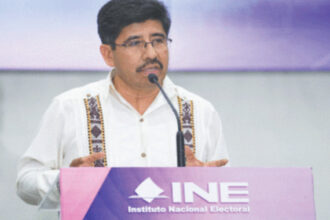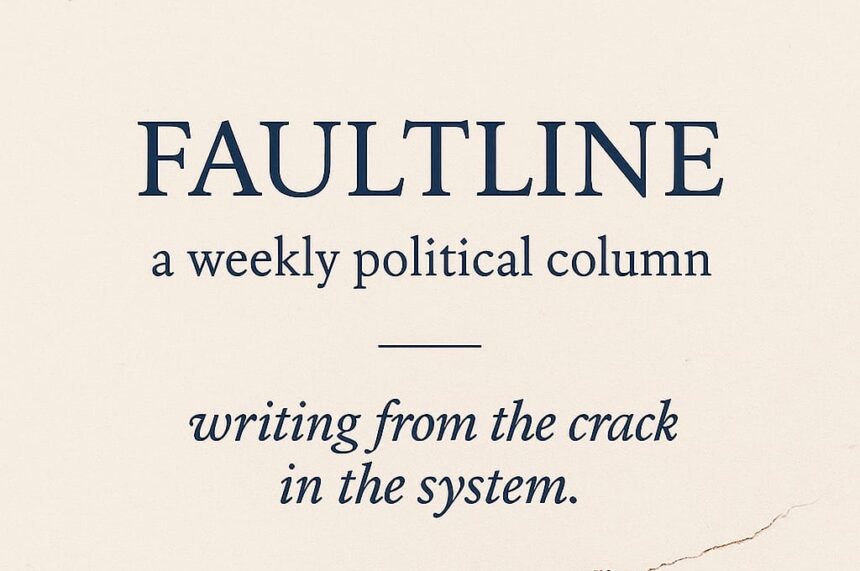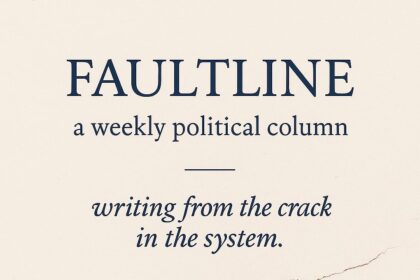In the Foucauldian sense, the state’s ultimate power lies not in law, but in the management of life and death – in deciding who may live “freely” and who must be regulated, watched, and, to the best of its intentions, contained. This week, the Punjab government, displaying a meritorious sense of universal justice, issued notices to Ahmedi families, demanding written affidavits promising they will only perform the symbolic sacrifice this Eid (at least as far as their dignity is concerned) and that any proclamation of Islamic practices (animal cruelty or not) will be dealt with staunch retaliation. This act, while qualifying as a bureaucratic win with the people who otherwise struggle to find a stable income in the economic sparsity of the region, is a brazen performance of sovereignty; a declaration of who is “allowed” to claim their public religiosity and who must apologise for their existence.
Crediting this problem, however, to just fanaticism cosplaying as the federation would be diminishing. Religious fundamentalism being adopted as the primary form of faith and faith being pushed as the constitutional narrative of a country whose very creation was a form of jihad provides a perfect cause-effect graph for this disease. In Pakistan, secularism (and all perverted interpretations of it) is a dirty word. Most days, it is a threat to national identity, a Western plot that unifies all Islamic factions of the country just as steadily as child marriages are being banned or blasphemy laws are being used as a household commodity in every conflict. From being misunderstood to borderline vilified, it is important to strip away the paranoia surrounding secularism and admit that it is not only desirable for Pakistan but critical.
Is it the separation of mosque and state that bothers Pakistanis? Or the refusal to weaponise religion and stepping away from mandating a belief that is legitimised to meet political ends? Regardless, secularism is neither the erasure of religion nor the banning of faith. It is the first step in actualising a version of Islam that isn’t built on the foundation of personal interests, paedophilic tendencies, and chauvinist propaganda. More importantly, it is a liberation of the collective from being bound to a specific form of faith that seems to demand an awful lot of sacrifices by a perpetually angry God, yet offers no respite, ironically counteracting the very purpose of the community that Abrahamic religions were formed around.
Since its inception, the Pakistani state has been deeply confused about the role of religion. From cherry-picking and misquoting Jinnah’s own speeches on religious freedom and identity to the Objectives Resolution being passed less than a year after his death, we have come from advocating for the individual to descending into the spiral that has perpetuated religion’s role from symbolic to systemic, thereby creating a permanent constitutional control over the same affairs of the state that were meant to defy the mistakes Hindu extremism made in pre-Partition India.
The blasphemy laws, amplified under Zia ul Haq’s regime (the aesthetisation of which is another case study), are now employed as instruments of fear instead of faith. They are used not to protect piety but to instigate sectarian violence through mob manipulation and structural tyranny. Where school curricula participate in cultural conditioning by preaching dogma, and minorities need to justify their “encroachment” on land that belongs to them, the death of critical thought has substantially shredded any attempt at humanising that which is not majority. And while there is a bitter satisfaction in recognising that even Muslims aren’t safe from the residue of their own ideological excrement – because only the right kind of Muslims qualify for discounted rights – it is also disappointing to note that Pakistan has regressed beyond comprehension of the rational mind.
This is not moral governance, but religious authoritarianism disguised as nationalism.
To argue for secularism in Pakistan is not to argue for atheism (though, coincidentally, the latter provides greater understanding to those on the politically legitimate spectrum than the former’s bigotry). It is the demand for state neutrality, whether for Ahmedis, Christians, or Shias. It cannot be defied when minor Hindu girls are abducted every day in Sindh and convert to Islam out of sheer willpower that they happen to possess only when it comes to religious orientation and not matrimonial decisions. When performative minority seats continue to colour the Parliament, and morality proceeds to be mandated via Ramadan transmissions and TV bans, we continue to mirror the same orthodoxy we have a lot to say about in our regional partners. Faith should guide personal lives, not government budgets.
Secularism not only safeguards minorities but is also the only viable framework for a multi-ethnic, multi-sectarian nation like Pakistan to survive without tearing itself apart. The argument for secularism, therefore, is the argument for intellectual freedom. The ability to question, disagree, and reject conventional perceptions of what faith could look like in a vacuum is a closer step to Islamic tradition than the institutionalised commodification currently being sold. When a religious state punishes dissent, declares every critic an infidel, and every reformer a traitor, it initiates a self-destructive cycle that regurgitates indoctrination without shame.
Pakistan has already paid the price of its ideological confusion. The 1971 succession was partly a rebellion against the religious and cultural hegemony imposed upon East Pakistan. The rise of militancy in the 1990s was fertilised by a state that trained men to kill in the name of faith. It must be asserted plainly, therefore, that the state has no business determining the purity of someone’s faith. No child needs to be taught to hate in the name of divine truth or for a woman to be admonished for existing beyond the bounds of state-sanctioned modesty. No citizen should be disappeared for speaking the wrong kind of religious language.
Secularism is not a threat to Pakistan’s soul. It is our only chance at healing. To begin worshipping a God instead of fearing the state’s idea of Him.






